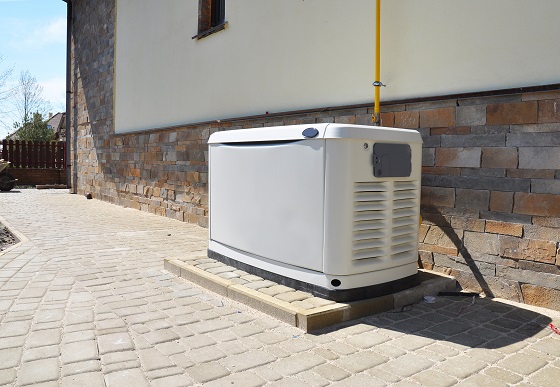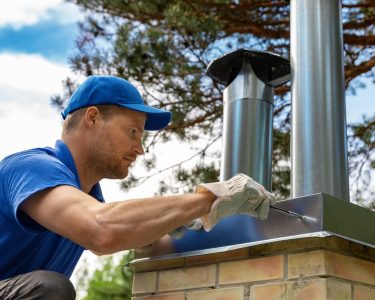As the winter storm season gets into high gear, people in cold-weather states need to prepare for possible power outages. Colder temperatures along with ice, snow, and wind set the stage for the kind of hazardous conditions that cause utility power failures across the country. Indeed, ice buildup can add as much as 30 times the normal stress on branches, which makes them much more likely to break off and take down power lines. Since a power outage means no heat for many residences, a blizzard can make homes pretty chilly inside.
When you lose power and outside temperatures have plunged below freezing, you won’t have much time before your house becomes very uncomfortable. While you can stave off some of the cold with a gas or wood-burning fireplace, they usually don’t produce enough heat to keep the rest of the house very warm.
If temperatures inside your house reach the freezing point, pipes will start to freeze. Before long, the water in the pipes will expand, causing them to split. When the power does come back on and the furnace starts up again, the pipes will thaw and spill out water where the cracks occurred.
Meanwhile, you have to put up with the hassle of no lights, tv, computer or internet access, and not being able to charge your cell phone. The best way to stay warm during a power outage is to arrange for backup power.
In fact, there are a number of reasons why you should have a generator to help you through those tough winter storms.
Operate Your Home Like Normal
Having a backup generator will enable you to continue running your home just like normal, especially if you work from home. And if you run a home-based business or other small business, you stand to lose a great deal of money, not to mention regular customers if you lose power.
Keep Your House Warm
Clearly, one of the essential reasons to invest in a backup generator is to keep your house warm regardless of how cold it is outside. This need becomes even more pressing if you’ve got elderly relatives or very young children at home. If your home’s heating system runs on electricity, the only thing that will help you weather the storm in comfort is a backup generator.
Power Your Major Appliances
One of your main concerns, when you go without power for an extended period, is keeping your food from spoiling. It won’t be long before the food in your freezer and refrigerator starts to go bad. If anyone in the house depends on medical devices, moreover, you simply can’t afford to go without power. The ability to run your household appliances can make a generator a lifesaver in times like these.
Run Your Sump Pump
One of the problems with losing power during heavy snowfall is the ensuing runoff when the snow and ice melt, which can pour extra water into the basement. If you have a sump pump, your basement might already have flooded as soon as the pump shut down. If you don’t have a backup generator to keep a sump pump running, your basement can flood quickly causing property damage and possibly structural damage to your home.
More Convenient and Easier than a Portable Generator
While some people like farmers or contractors may need a portable generator to continue work outside the home, a standby generator is generally more convenient and easier to run than a portable one. For instance, standby generators are automatic. As soon as a power outage is detected, it cues the backup generator to supply power to the home within seconds.
And unlike a portable generator, you don’t have the hassle of storing fuel safely or going out in the middle of a blizzard to get more fuel because it runs on natural gas or propane connected to the home’s existing gas supply line.
The first big storm of the season seems to be everyone’s wake-up call when it comes to buying a generator. As a result, portable units always sell out quickly as soon as there’s news of an impending storm. However, you can avoid the rush by installing a backup generator ahead of time to keep your home well supplied with power when you need it most. Whatever weather comes your way, your standby generator will be there to keep your appliances running, your lights on, and your family warm until power lines are repaired.





